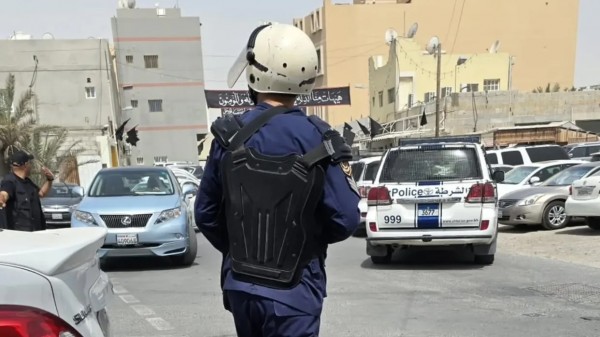|

Bahrain: Ashura Violations and the Need for Constitutional Guarantees
By Baqer Darwish, Chairman of the Bahrain Forum for Human Rights Article 22 of Bahrain’s Constitution states that “Freedom of conscience is absolute. The State guarantees the inviolability of worship, and the freedom to perform religious rites and hold religious parades and meetings in accordance with the customs observed in the country.” This article is supposedly sufficient to prevent any violations of religious freedoms (particularly given the annual pattern of infringements by the Ministry of Interior), but sectarian persecution in its various forms remains subject to the whims of official policies. This is an honest discussion based on a decade-long experience of rampant sectarian persecution, which the state has used the ministries’ executive powers to reinforce it. In addition, funds have been spent to justify or deny it, and conferences, organizations, and committees have been established to present the state as a beacon of religious tolerance. Meanwhile, the state still bans central Friday prayers in Diraz simply because they included expression of opposition to the injustices committed by the Israeli occupation in Lebanon and Gaza. Remarkably, senior state officials work tirelessly under the banner of “religious tolerance” to participate in events related to other sects and religions. However, when it comes to the Ashura season, their most visible involvement manifests as threats from the Minister of Interior—an outright contradiction! This contradiction seems almost systematic; the authorities form a center for religious tolerance abroad while promotes sectarian oppression at home. Unsurprisingly, this year’s Ashura season has come with a wave of summonses against a number of citizens, coerced signing of pledges, investigations into religious sermons and procession poems, removal of Ashura displays in at least 15 areas, arbitrary arrests, and even bans on raising the Husseini flag in Manama. Even more bizarre is the prosecution of citizens for wearing clothing that features certain images or slogans. This includes targeting eulogy reciters (radood), preachers, clerics, administrators of Husseiniyas, mosque caretakers, and ordinary citizens—an approach aimed at achieving several goals, one of which is criminalizing religious discourse, whether from the pulpit or through procession poetry. One may ask: what prompted the Minister of Interior to make those statements ahead of the Ashura season, during his annual meeting with the heads and managers of matams (religious congregation halls), referring to some of them as "voices of escalation" on social media? Of course, this does not include years of incitement in state and semi-official media. Did those who called for arrests and curbing freedoms and labeled individuals with red circles on Bahrain TV were voices of calm and societal coexistence? I believe an analysis of some of the summonses and persecutions that occurred this season provides answers for the purpose of those statements. According to the Minister of Interior, condemning the crimes of the Israeli occupation—whether in Gaza, Lebanon, Iran, or Yemen—constitutes a threat to national unity. This introduces a new addition to Bahrain’s security doctrine—not that such a belief was entirely absent before—but it has now been expanded and entrenched through the targeting of reciters, preachers, matam heads, and citizens. In fact, the Ministry of Interior, and particularly the Minister himself, seems deeply concerned about national unity—especially when the Israeli entity is criticized. It appears the religious discourse should present the killing of innocent people with American bombs as “legitimate self-defense.” What if a reciter composed a poem praising Israeli entity? Or a preacher delivered a sermon portraying the criminal occupation entity as a victim? Would the Minister of Interior consider that an affront to national unity? Who knows, it might even help strengthen his son’s CV as Bahrain’s ambassador in Washington! I almost forgot—can someone who claims to be defending national unity be the same minister whose ministry has been involved in sectarian persecution since 2011, to the extent that some security personnel in prisons use extremist, ISIS-style language against prisoners of conscience? This is in addition to violations such as denying detainees the right to pray or showing contempt for their beliefs. The Minister of Interior and the state media, which featured his remarks in bold headlines, leave one wondering why the state insists on giving a religious season a security-based character. Why is the Ministry of Interior the main body dealing with the Ashura season instead of—at least formally—the Jaafari Endowments Directorate or the Ministry of Justice and Religious Affairs (despite reservations about both form and content)? Perhaps, since this meeting is in Bahrain, there’s no need to form a religious tolerance committee in Washington on behalf of Bahrain or host an international conference on religious tolerance, hosting figures from various countries around the world under the patronage of the state-affiliated religious institution. The security message is clear in a security state; why the surprise? In general, this seasonal pattern of violations against freedom of religion and belief has become a norm in the conduct of security forces. It’s even become a pillar of the state’s security doctrine and even a basis for commendation, promotions, and appointments—as in the case of appointing a certain ambassador in Washington. After all these years of systematic violations of religious freedoms—whether they have lessened, increased, or taken different forms or justifications—there is a pressing need for clear, specific constitutional guarantees for the Shi’a community in Bahrain. These are necessary to prevent the Ministry of Interior from pursuing Ashura-related poems, sermons, clothing, banners, and much more. |